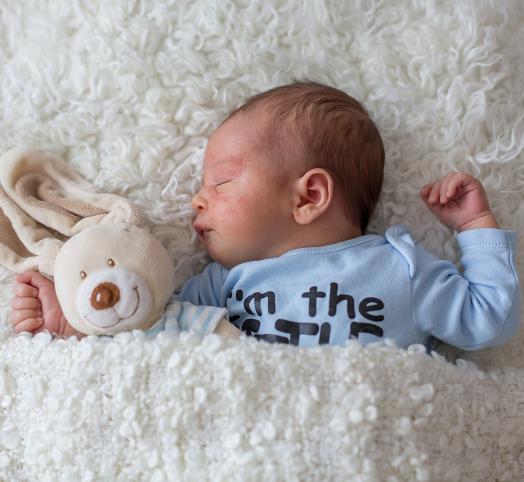Countryside, city, or mountainous regions: what is the impact on eczema-prone skin?
Updated on March 2, 2023
Created on July 17, 2019
AU & NZ - Find your nearest pharmacy here
Updated on March 2, 2023
Created on July 17, 2019

Written in partnership with Dr. Clarence De BELILOVSKY, dermatologist & member of the Mustela experts' circle.
In the city: What health practices should be adopted with babies prone to eczema-prone skin?
It’s true that cities are more polluted, with dust, dirt, and small particles due to exhaust gases. This pollution brings the skin in contact of allergenic elements (see our file on eczema-prone skin). It also makes pollen more irritating. In this case, you can always keep a water atomizer and your emollient in your bag if you think that your child might be especially exposed to it, during a school trip for instance. For the rest, a good shower in the evening will enable him to get rid of these allergens and get ready for a good night. Special emollient treatments for babies and children will also be strong allies (see the benefits of emollient care).
Don’t worry, though, a single shower is enough. In order to feel completely clean in this urban environment, we tend to adopt extremely strict hygiene routines. Nevertheless, this habit may promote the drying of your baby’s skin. The immune system is more active than necessary when your child is confronted with germs if he is less-often exposed to them. This can make him more sensitive to allergens.
Countryside or City? Even with babies prone to eczema-prone skin, the immune system needs to be stimulated by infections in early childhood. It is really astute to be careful regarding dust and mites to prevent the emergence of eczema-prone skin, but being careful about everything around you is not necessarily likely to cure it. As a matter of fact, there are more children affected by eczema in cities, where hygiene habits may be overdone.
Speaking of showers, tap water can also play a significant role. According to its limestone content, bacteriological qualities, and potential pesticide residues, may be partly responsible for skin dryness or irritation. In cities, it depends on the region and population: the more inhabitants, the more regular the controls, and the more regular the controls, the better the water quality. As you know, water in the city may be less harmful to your baby’s sensitive skin – that’s a good thing., To compensate for the drying effects of cleansing with water, you can use a special bath oil for babies and children, if needed.
Finally, and as strange as it sounds, an efficient way to fight against urban pollution is to air out your indoor areas! Indeed, allergens and other impurities tend to accumulate inside, and their concentration might become increasingly significant if they remain “confined.”
Countryside or mountainous regions: Which hygiene and health practices should be adopted with babies prone to eczema-prone skin?
The pure air of the mountains and the countryside is always an advantage we would like to offer our children, whether eczema-prone or not. If you live in the mountains, you offer them an environment that is (almost) free of mites! They love the indoors for the heat and they hate high altitudes. From 1500 meters and up, the temperature is rarely higher than 25 degrees, the temperature they prefer.
However, pure air also means more animals and plants. According to your child’s sensitivity, they may have an influence on reactions or allergies. In spring, the high concentration of pollen may also trigger the immune system.
In this case as well, keeping a water atomiser and your chosen emollient within reach will be a valuable weapon, as much as the daily shower, preferably in the evening, and the daily application of emollient care (like Stelatopia Emollient Cream or Balm), which will remain a beneficial way to protect your baby’s skin.